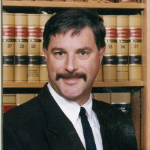When problems arise after close of an escrow for a particular real property, the listing and selling agent are typically contacted by an attorney for either the seller or buyer or both of them. This raises a concern for the real estate agent, in that he or she usually desires to help his or her client where communicating with the client’s attorney is seen as assistance.
Under California law, an agent’s duty terminates when the real estate transaction ends. There are no post escrow duties between the real estate agent and his or her former client, other than the licensee is required to provide the former client with copies of all documents in the transaction file if asked. (Menzel v. Salka (1960) 179 Cal. App. 2d 612; Robinson v. Grossman (1997) 57 Cal. App. 4th 634).
Many times after problems have arisen on a closed sale, I have seen situations where a real estate agent is communicating with a former client’s attorney through telephone conversations, e mails, letters and in-person meetings. Such communications, although perceived as “helpful” by the real estate licensee, are not “helpful” from a risk management perspective.
The reason is that the former client now has a lawyer representing him or her in a closed real estate transaction, and there is no reason why the real estate licensee should be communicating with a former client’s attorney absent the licensee having one of his or her own. The communications by the real estate licensee further put him or her at risk for being sued in the event of a lawsuit regardless if the real estate agent deemed the client a “friend.”
How well does a real estate agent know his or her client? Most clients are referrals, or happen to become a client by mere happenstance. Far too frequently, one’s real estate client and “friend” will sue his or her real estate agent when problems arise over a closed transaction either as a direct lawsuit or in a cross complaint. Speaking with a client’s attorney about a problem with a closed transaction absent your own attorney being present is simply a bad idea, and opens the real estate agent to being a target in a lawsuit based upon what was said to the former client’s attorney.
An attorney-client relationship may be inferred from the parties’ conduct despite the absence of any written agreement. Neither a fee payment nor a formal agreement is required. (Lister v. State Bar (1990) 51 Cal. 3d 51 Cal. 3d 1117; Streit v. Covington & Crowe (2000) 82 Cal. App. 4th 441, 444) An attorney-client relationship can be established when the attorney offers to investigate a case, volunteers legal services or otherwise provides legal advice to a prospective client. (Beery v. State Bar (1987) 43 Cal. 3d 802, 239.
In the event you are contacted by an attorney for a client on a closed real estate transaction, and you wish to speak with him or her about the transaction absent the presence of your own attorney giving you legal counsel as recommended above, you should consider sending a confirming e-mail to the attorney memorializing the conversation with explicit reference to any legal advice that the attorney gave you in the conversation and save the e-mail in your transaction file. The significance of confirming any legal advice that the seller’s or buyer’s attorney gave you places the particular attorney in a conflict situation if he chooses to name you in a lawsuit concerning the closed real estate transaction that you both had discussions about.
About the Author
B. Edward McCutchan, Jr.
Mr. McCutchan’s practice is primarily civil litigation with an emphasis in defending professionals and businesses in real estate, mortgage brokering, construction, banking and agricultural industries and all phases of dispute resolution through trial and appeal. His area of practice is also agricultural law (viticulture and wineries), trusts and estates, probate, real estate transactions, business law and elder abuse. B. Edward McCutchan, Jr. was admitted to the Bar in 1985 and is admitted and qualified to practice in all California courts and the U.S. District Court, Eastern and Northern Districts of California as well as the United States Tax Court.

